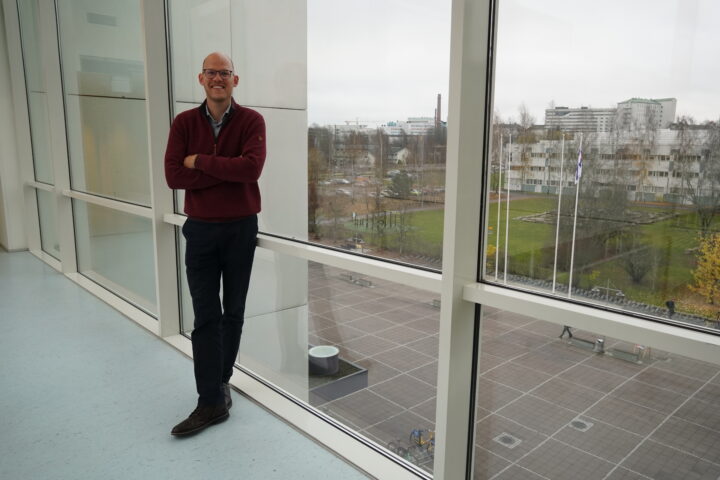INVEST visitor: Bálint Menyhért
In the “INVEST visitors” series, we present visiting professors and fellows who have arrived at the flagship INVEST. This time we are introducing Bálint Menyhért.
My name is Bálint Menyhért and I am an empirical economist from Hungary. I am honoured and excited to be a Visiting Fellow at INVEST from September to November 2025, kindly hosted by Mikko Niemelä. I look forward to collaborating with him and other researchers of the University of Turku during and beyond my stay.
I obtained my PhD from the Central European University in 2017. Since then, I have worked for the Employment Labour and Social Affairs Directorate of the OECD, the Joint Research Centre (JRC) of the European Commission and the Development Research Group of the World Bank.
At these places, my focus has been on socio-economic inequalities, distributional perspectives and innovative measurement approaches at the intersection of research and policy. A good example is the ABSPO project on absolute poverty measurement across the EU that I coordinated at the JRC, the results of which were published by Palgrave Macmillan as a methodological handbook earlier this year. My research has appeared in journals such as Social Indicators Research, the Review of Income and Wealth, or Energy Policy, as well as in numerous policy reports.
My affiliation with INVEST is highly rewarding on both professional and personal levels. Professionally, it offers a stimulating environment to pursue a truly noble tradition in economics and social sciences: identify broad and pressing societal questions, and bring to bear all the necessary data and methods to answer them.
On the personal level, it allows me to follow the intellectual footprints and carry the legacy of the late Hungarian economist Gábor Kézdi, my former mentor and supervisor, whose dedicated research and teaching on racial discrimination, aging, inequality of opportunity in education always emphasized the importance of not just sound econometrics but careful data analysis. Gábor would be equally thrilled about the possibility of studying socio-economic and life course inequalities using fantastic Finnish survey and register data.
During my fellowship, I plan to concentrate on two different topics. First, using existing ABSPO estimates, I would like to study the anatomy of poverty reductions in the context of corresponding societal transformations using Finnish register data from the 1990s onwards.
Second, I am also keen to explore the role of labour market characteristics for socio-economic outcomes at the local level. While employers, including the task, skill and innovation pool they represent, are clearly important determinants of employee well-being, they are rarely included in social research and analysis.
I believe that these projects get to the heart of INVEST’s mission to support a more efficient and sustainable welfare state.

